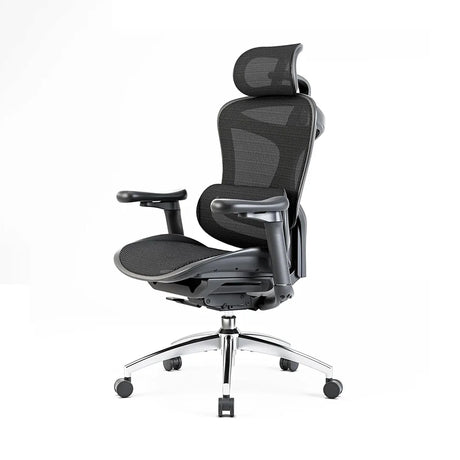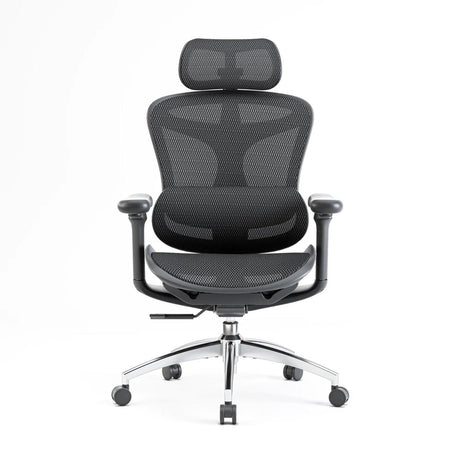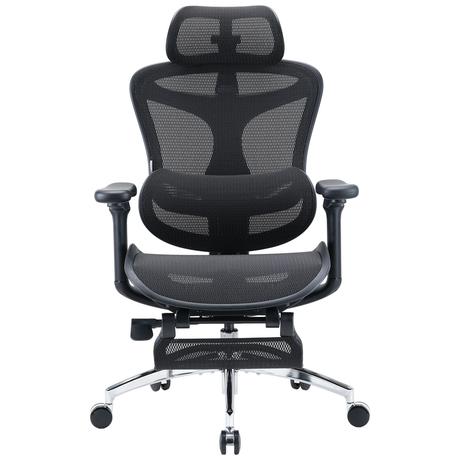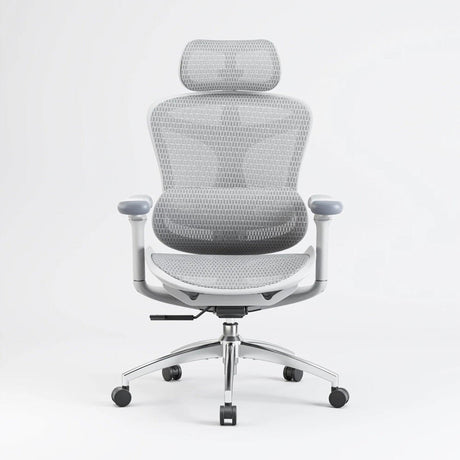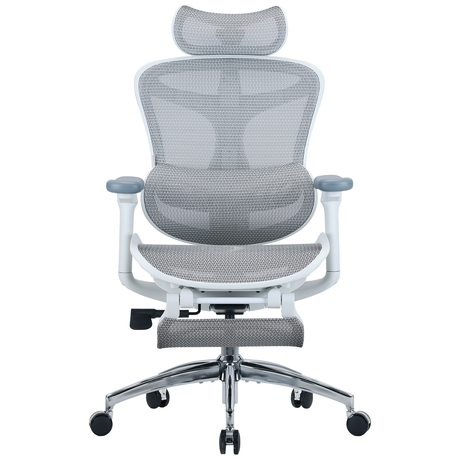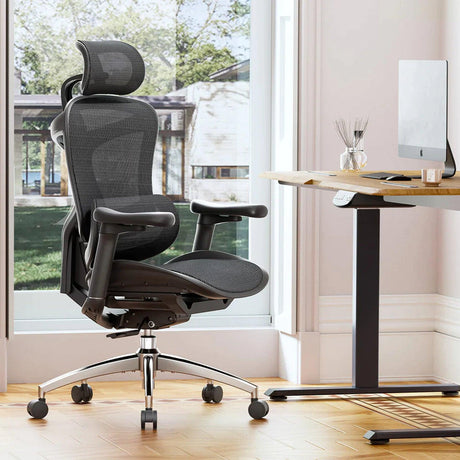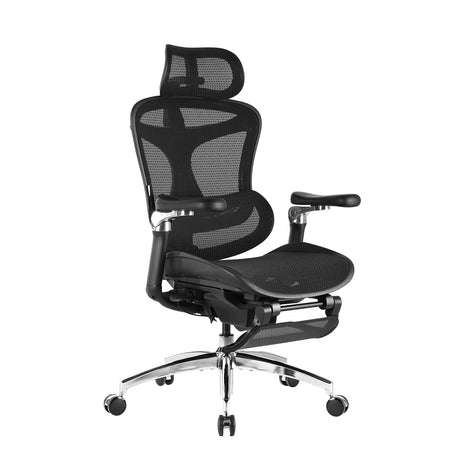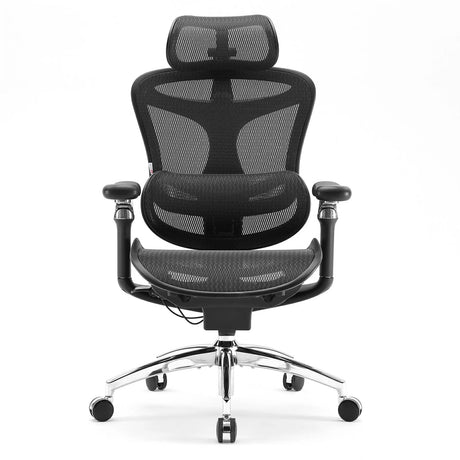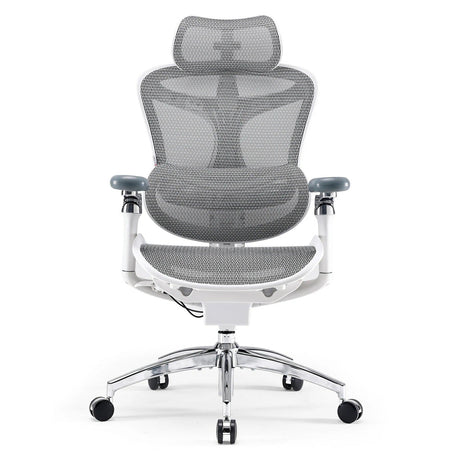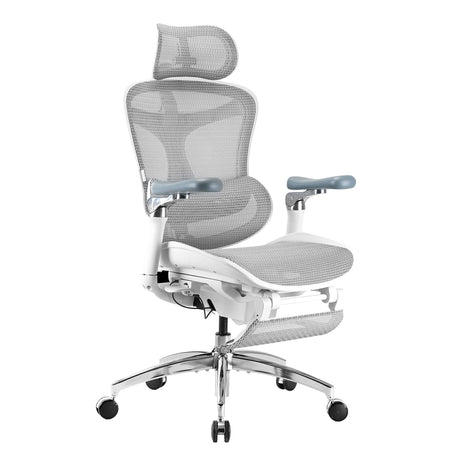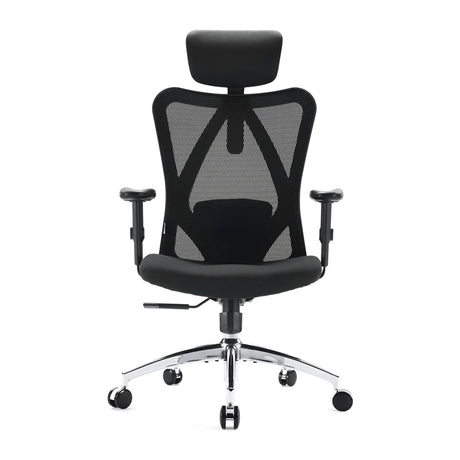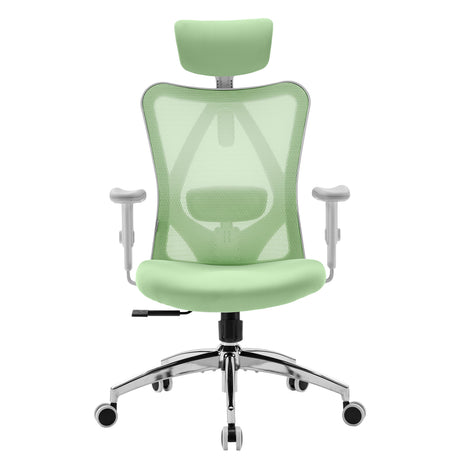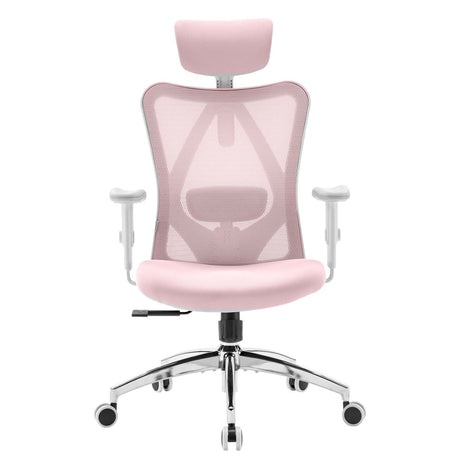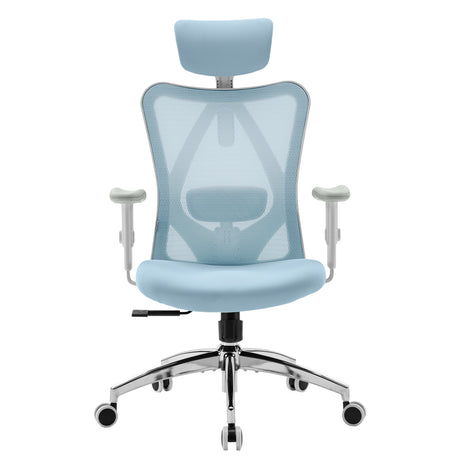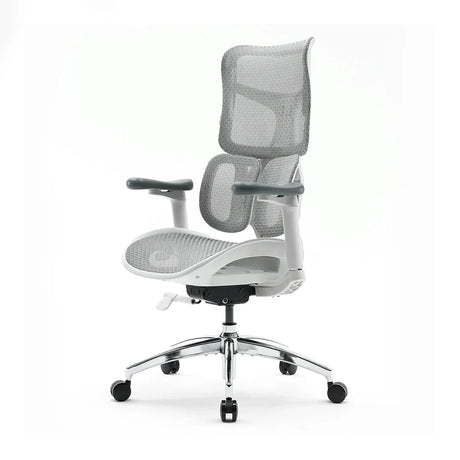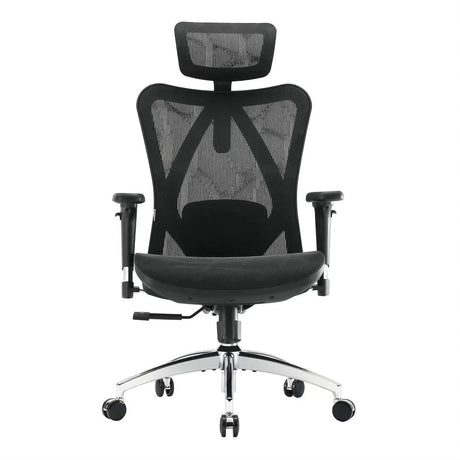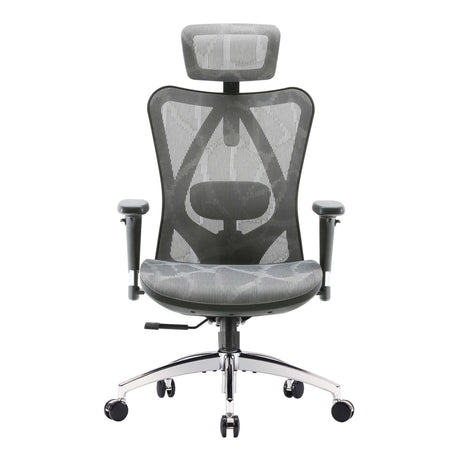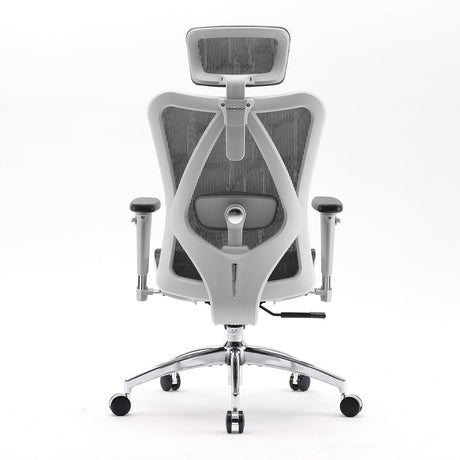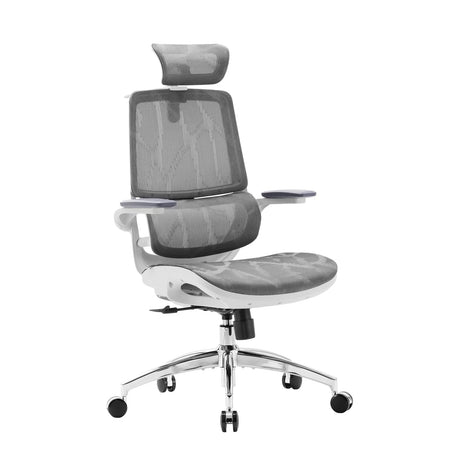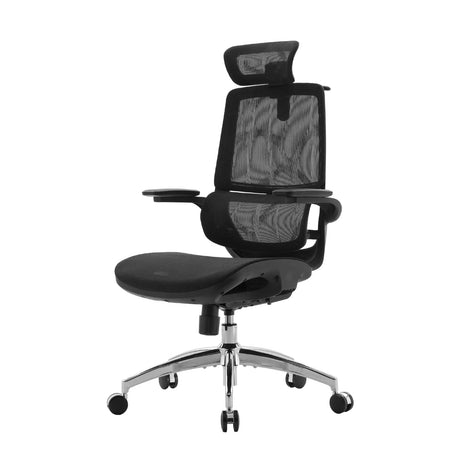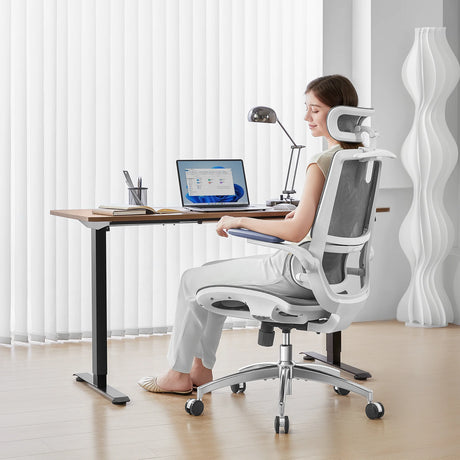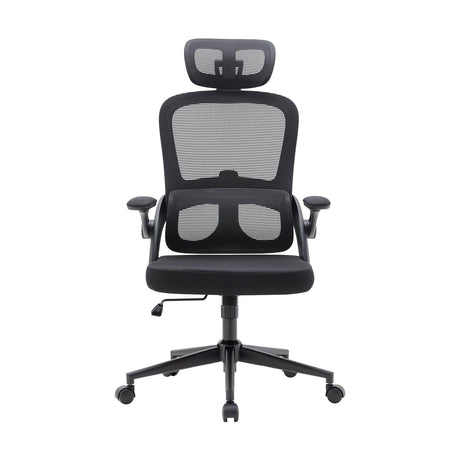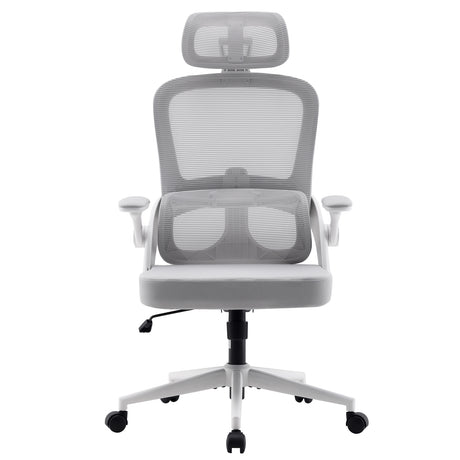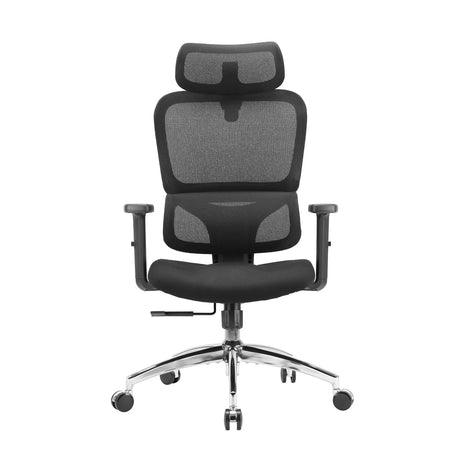Ergonomic chairs are more than just office furniture; they are essential tools for promoting comfort, productivity, and overall well-being, especially for individuals who spend extended hours seated. However, one size does not fit all when it comes to chairs. People come in various shapes and sizes, each with unique comfort needs. This is where adjustable features in ergonomic chairs play a pivotal role. By allowing customization according to different body types, these chairs can significantly enhance comfort and support for users across the spectrum.
Height Adjustment:
One of the fundamental adjustable features in ergonomic chairs is height adjustment. Not all legs are the same length, and not all desks are set at the same height. With a height-adjustable chair, individuals can ensure that their feet rest comfortably on the floor while maintaining proper alignment with their desk. This feature is particularly beneficial for taller individuals who may struggle with standard chair heights, as well as for shorter individuals who require additional lift to achieve optimal ergonomic posture.
Lumbar Support:
Proper lumbar support is essential for maintaining the natural curve of the spine and preventing lower back pain. However, the ideal level of lumbar support can vary greatly depending on an individual's body shape and posture. Adjustable lumbar support in ergonomic chairs allows users to customize the depth and firmness of the lumbar support to suit their specific needs. This feature is especially advantageous for individuals with different degrees of spinal curvature, as well as those who experience varying levels of lower back discomfort throughout the day.
Seat Depth and Width:
Another critical aspect of ergonomic comfort is seat depth and width. A seat that is too shallow can cause pressure points behind the knees, while a seat that is too wide may not provide adequate support for the hips. Adjustable seat depth and width allow users to achieve the perfect fit, ensuring proper weight distribution and reducing the risk of discomfort or musculoskeletal strain. This feature is particularly beneficial for individuals with larger or smaller frames who may struggle to find chairs that accommodate their unique body proportions.
Armrest Adjustment:
Proper arm support is essential for reducing strain on the shoulders, arms, and wrists, especially during tasks that require typing or mouse use. Adjustable armrests in ergonomic chairs enable users to position their arms comfortably, whether they prefer to rest them at their sides, at a slight angle, or aligned with their desk surface. This feature is particularly advantageous for individuals with broader or narrower shoulders, as well as those who require additional support due to conditions such as carpal tunnel syndrome or arthritis.
Tilt Mechanism:
A tilt mechanism allows users to recline or lean back in their chair, providing relief for the spine and promoting dynamic sitting. However, not all tilt mechanisms are created equal, and the ideal degree of tilt may vary depending on an individual's body type and preferences. Adjustable tilt tension and lock settings allow users to customize the recline experience, whether they prefer a firm, supportive feel or a more relaxed, fluid motion. This feature is particularly beneficial for individuals with back pain or stiffness, as well as those who engage in tasks that require frequent changes in posture.
Conclusion:
In conclusion, adjustable features in ergonomic office chairs sale play a crucial role in maximizing comfort and support for individuals of all body types. From height adjustment to lumbar support, seat depth, armrests, and tilt mechanisms, these customizable features enable users to tailor their seating experience to meet their unique needs and preferences. By investing in ergonomic chairs with adjustable features, individuals can promote better posture, reduce the risk of musculoskeletal discomfort, and enhance overall well-being, ensuring a more productive and enjoyable seated experience.

